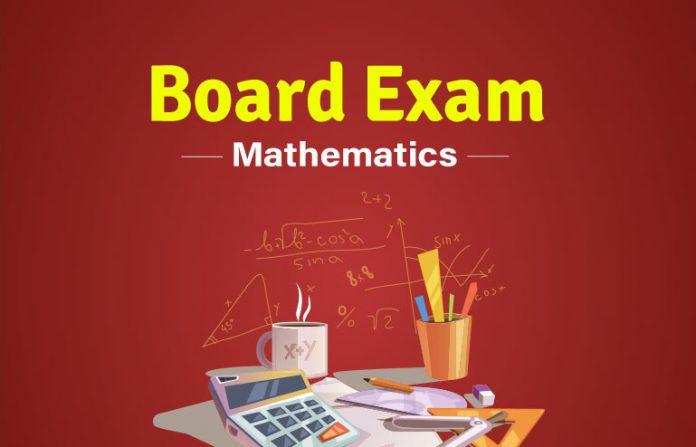The theories and principles of Mathematics apply to different fields of life. But despite the relevance, for many students, Mathematics remains the most difficult subject of the Board curriculum. It might be slightly tricky, but there’s no denying that CBSE Board Maths exam is one of the highest-scoring out of all other subjects. If one has a clear understanding of the basic concepts of all chapters, a sound practice regimen, and a command over formulae, scoring well in Mathematics is not difficult at all.
Here are a few smart strategies to help you do just that.
Work on your speed
Often, students fail to attempt questions they know the answer to because of lack of time; and end up scoring a lot less than what they should have. Thus, improving your speed is a must.
To do so, practise a variety of questions from all topics. It is also important to be thorough with the derivations because any confusion can lead to time wasting. Keep a check on how much time you spend on solving questions from various sections. Ideally, it should not be more than 3-5 minutes on questions carrying lesser marks. That way, you will be able to allocate more time to the 6-markers, which are typically lengthy/tricky questions.
Focus on accuracy
The significance of accuracy cannot be emphasized enough. While calculating, be extremely careful. Be accurate in applying any formula. Remember, even a change of sign, say, from (+) to (-), or vice versa, can lead to losing marks. Therefore, work on reducing lapses in your concentration. Being aware of the chapter-wise marking scheme is also beneficial, as it helps increase your level of preparedness. Give extra attention to topics that carry higher marks weightage.
Stick to textbooks for basic questions
Around 90% of questions in Board exams are either taken directly from NCERT textbooks, or from their replicas. Hence, for basic concepts—and for getting an idea of the type of questions—stick to NCERT and the prescribed CBSE books. Practise every question in the textbooks, including the solved examples. However, for comprehensive preparation, a good reference book is a must.
Solve previous years’ papers and sample papers
Practising time-bound solved papers help a lot in understanding the flair and pattern of the exam. For better practice, solve the sample papers (especially the ones released by CBSE) and model papers within the specified time frame. Regularly solving papers in the same time period as the actual paper also ensures that you are comfortable sitting for long hours while improving your speed and accuracy.
Neatly write down the steps
As writing down the steps carries marks, you should practise it while solving problems. Even if you do not know the complete solution to a question, do try to write those steps you are sure of.
Follow these strategies, and boost your chances of scoring a 90+ in the exam!
You may like to read a comprehensive guide to NTSE 2018-19 for Stage 1 and Stage 2.
If you have any queries about CBSE Board Maths exam, write to us in the comments section below and we’ll get back to you shortly.





















































